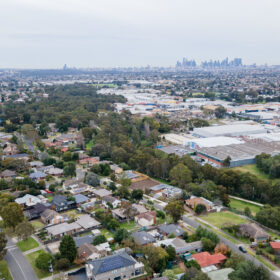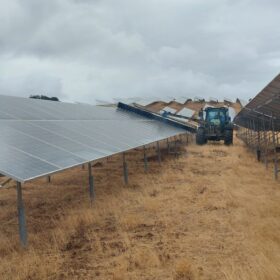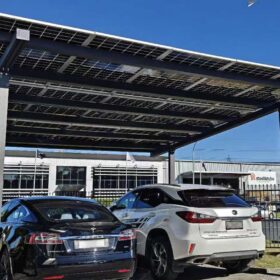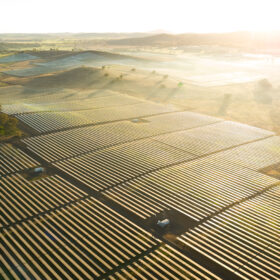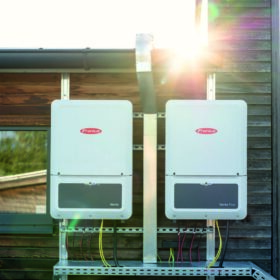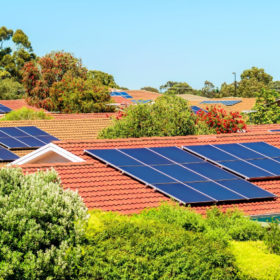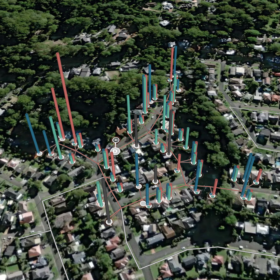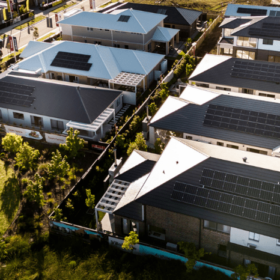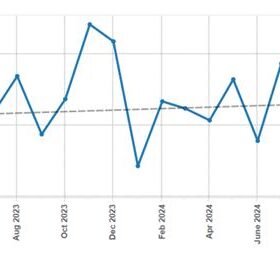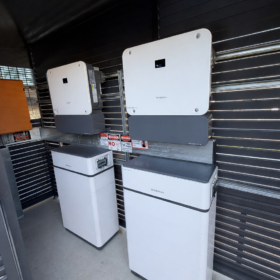PowerPlus presents hybrid inverter and battery solution
Australian battery designer and manufacturer PowerPlus Energy has unveiled a new all-in-one energy storage solution featuring a single-phase 7 kW inverter and a 13.4 KWh stackable battery.
Jemena adds community batteries as part of prep for rooftop solar influx
Victorian distribution network service provider Jemena has flicked the switch on the first two community batteries to be installed within its electricity network as it prepares for rooftop solar capacity to more than double in the next decade.
Chemitek Solar launches new antistatic soiling mitigation coating
The Portuguese company said its new anti-soiling solution lasts for at least a year. It can be applied during routine cleaning operations by mixing it directly in the cleaning water.
Solar carport serves as alternative for rooftop PV
GoodWe BIPV has identified new applications for its Vela residential solar carport with the modular unit gaining traction in rural and small commercial settings as an alternative to ground-mounted and rooftop PV systems.
Majority of Australian business chiefs want renewable grid by 2035
A global business executive poll has found 77% of Australian business leaders want a renewables-based electricity system within the decade and for the federal government to priortise reskilling of high-carbon sector workers to help fill clean energy jobs.
Fronius launches hybrid inverters for residential, commercial applications
The Austrian manufacturer said its new hybrid inverters can increase the usable output of the PV system to up to 150%. They are available in six version with rated AC power ranging from 15 kW to 33.3 kW.
Engie trial flips fears of solar tax to help customers earn from solar curtailment
Uptake of an ENGIE and SA Power Networks trial offer to help manage periodic oversupply of household rooftop solar energy – by rewarding customers – has seen its cap of 50 households double to 100.
Gridsight to power up grid orchestration platform
Wollongong-based software company Gridsight has raised $7.5 million to support the growth of its AI-powered platform that is designed to help electricity network operators integrate and maximise the use of new distributed renewable energy resources such as solar and batteries.
Unsolicited rooftop solar sales subject to ‘super complaint’
Australia’s consumer watchdog is being urged to ban the unsolicited sale of solar products with a national advocacy group saying the “harmful” practice is degrading trust in the solar industry and government schemes and discouraging people from participating in the transition to clean energy.
SunWiz points out slowdown in rooftop solar install rates
The latest monthly update from market analyst SunWiz shows 253 MW of new rooftop solar capacity was installed across Australia in March 2025, up 4 MW on the 248 MW that was installed during the previous month.

